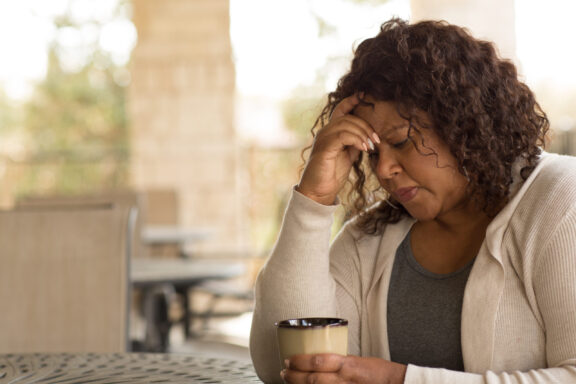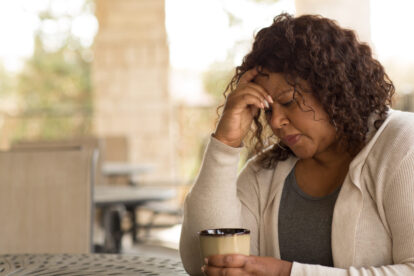Joining the dots around menopause
One woman’s powerful realisation about menopause
Deputy Head of Education at The Mental Health Toolkit, Charlie Green, spoke to a woman at an event, who wants to share her story.
Last week, I was invited to give a menopause talk at a local sports club. It was one of those lovely community evenings, a room full of conversation, curiosity, and connection. Before the talk began, I had a brief chat with a woman who was running the bar that night. She wasn’t actually attending the session, just helping out behind the scenes.
In passing, she mentioned that she hadn’t really noticed any symptoms during her own menopause. In fact, she admitted she was a little sceptical about why so many women today seemed to be “struggling with it,” adding, “We never had these issues in our generation.”
But something shifted that evening.
After the talk, she came straight up to me, visibly emotional, and said she needed to tell me her story. Through the information I had shared, and the activity we did exploring perimenopausal, menopausal, and postmenopausal symptoms, she suddenly realised that she had been through an incredibly tough time. She just hadn’t known it then.
Fifteen years ago, after a 20-year career, she had reached a breaking point. One day, feeling completely overwhelmed, she simply put down the phone at work and walked out. She couldn’t face returning for weeks. Her doctor diagnosed depression and prescribed antidepressants.
She told her GP at the time that she had noticed changes in her menstrual cycle and wondered whether she might be approaching menopause. But she was told, quite firmly, that until she had stopped bleeding for a full year, she wasn’t menopausal, and that what she was experiencing was depression.
For the past 15 years, she has believed she had suffered a mental breakdown. She carried that story with her, that she wasn’t coping, that she’d somehow failed, even though she had a happy marriage, a close family, and a job she loved. On paper, her life looked fine, but inside, she felt like she was falling apart.
Hearing the talk that evening changed something profound for her. She told me that, for the first time, she was able to join the dots and make sense of what she went through all those years ago. It was moving to see how much it meant to her, to finally understand that what happened wasn’t a personal failing, but an unrecognised part of her menopausal journey.
She said it felt validating, even healing, to realise this. And she wanted her story to be shared, anonymously, in the hope that it helps other women of her generation recognise themselves in it.
She also told me she wished conversations like this had been happening back then. She wants to help us raise awareness so that no woman feels as lost and unsupported as she once did.
Her courage and openness that night were a powerful reminder of why these discussions matter, because understanding menopause doesn’t just help us in the moment, it can help us heal old wounds too.
Get Support:
Reach out to Suffolk Mind’s Menopause and Me service
M-Powered Support Groups with Suffolk Community Libraries
Our M-Powered support groups offer the chance to speak with other people who might be experiencing the same things as you and give each other support, encouragement and understanding.












